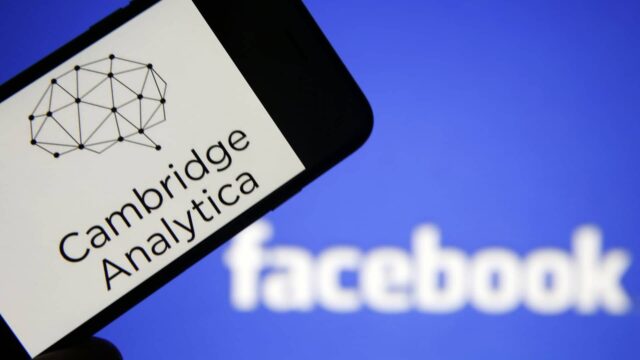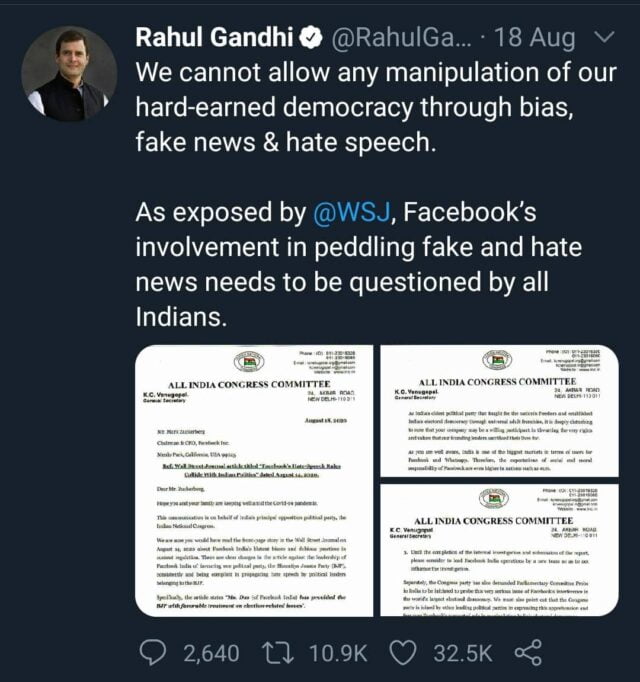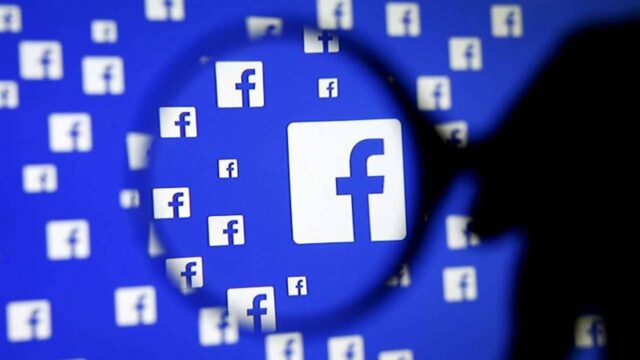In another controversy surrounding Facebook, it seems as if India might be facing the brunt of it this time.
Allegations against the media giant for mining data and advocating biased information during election campaigns is not new, and it goes back to the biggest internet scandal of all time, the Cambridge Analytica Scandal.
What Was The Scandal All About?
Cambridge Analytica was a political advertising and consultation firm that had access to the data of millions of Facebook users.
Through an app disguised as an academic study, it constructed the physiological profiles of many Americans, which was then used to aid the Donald Trump Campaign. This scandal was revealed only in 2018, after which the company was charged and went defunct.

Following this reveal, the Parliamentary Standing Committee on Information Technology of India, headed by BJP MLA Anurag Thakur, had summoned India’s Facebook representatives in April 2018.
This was because members of BJP and Congress had accused each other of having used Cambridge Analytica for their respective election campaigns. The criticism remained that Facebook was “unwilling to be properly scrutinized and transparent.”
On April 5th, 2018, Christopher Wylie from Cambridge Analytica claimed that Congress was a client of the company and that around 562,455 Indians’ data had been collected.
In fact, its parent company called SCL Group has offices in various cities of India. The CBI probe into the case showed no conclusive evidence because of the global nature of the platform.
However, the accusations never stopped.
What Is Happening Now In India?
The crux of the problem comes down to content moderation on the social media platform.
On 18th August, Rahul Gandhi tweeted a Wall Street Journal article which exposed how an executive had posted messages that favoured BJP. This article points out that Ankhi Das, who is now Facebook India’s Public Policy Head, was in favour of Modi’s leadership in 2014.

Congress sent a letter to Facebook after this, stating that the allegation of Facebook’s interference with India’s electoral democracy was serious.
Following a lot of complaints after Rahul Gandhi’s tweet, IT Minister Ravi Shankar Prasad also sent a letter to Mark Zuckerberg, Chief Executive Officer of Facebook, accusing it of “bias and inaction” and not being inclusive of various ideologies, including that of the right-wing.
Read More: Why Did Rivals Facebook And Google Invest In Telecom Giant Jio?
Following other complaints that were raised against posts and pages that centred around right-wing ideology, Ankhi Das responded that the removal and moderation of the same would obstruct Facebook’s business prospects in India.
She opposed the ban of BJP MLA T. Raja Singh after he was accused of engaging in hate speech against Muslim communities since she did not want to ruin the relationship Facebook had with the ruling party.
However, Raja Singh was eventually banned by Facebook after it faced a heavy backlash. Raja Singh claimed that he had no account on the site since 2019, and accused Rahul Gandhi of making false statements against BJP for spreading the right propaganda.
Due to the pandemic situation, conventional sectors have gone down and the influence of digital and social media companies has gone up, as stated by former RSS ideologue KN Govindacharya, who sought a probe by the Joint Parliamentary Committee into the workings of Facebook India.
He mentioned in his letter that around 9 American Internet companies held data of about 6 billion Indians with US Intelligence agencies under operation PRISM (according to Edward Snowden’s disclosures).
A Parliamentary Standing Committee, headed by Shashi Tharoor, was set up and the discussions are still going on. In the most recent report, Facebook denied all allegations and said that it was non-partisan and took bias and bigotry seriously.
How Much Power Does Facebook Have?
Facebook’s shareholders claim that the CEO holds too much power over the company, and this monopoly has become questionable surrounding such problems of data privacy and security.
Currently, the CEO controls Instagram and WhatsApp as well. Facebook owns one of the most influential tools that predicts human behaviour which enables the company to have persuasive power over people.

In her book called Surveillance Capitalism, Shoshana Zuboff states that Facebook has the power to analyze how people use media which helps generate data on them. Another controversy had also recently emerged that WhatsApp was also being used as a tool for propaganda in India.
In the context of India, it becomes even more difficult to control hate media and misinformation because of multiple languages.
A public policy executive of Facebook stated that the underlying problem lies with the business model itself, which refuses to let go of its potential markets.
This was the same reason that Ankhi Das had used. Recently, Facebook even invested around 5.7 billion dollars on the digital wing of Reliance Industries, which brings into the light as to who holds the power in terms of deciding the proponents of democracy.
Could Facebook be the end of democracy?
Image Credits: Google Images
Sources: Economic Times, India Today, The Wire +more
Find the blogger: @aiswaryanil
This post is tagged under: facebook, mark zuckerberg, cambridge analytica, scandal, net neutrality, online scandal, rigged elections, data mining, digital privacy, content moderation, donald trump, republican, congress, election campaigns, electoral results, india, congress, bjp, modi government, surveillance, breach of security, internet, cyber crime, unsafe internet, is data safe, social media, has facebook become dangerous, why does facebook have so much power, how safe is online data, are elections rigged, is facebook biased
Other Recommendations:
With PUBG Banned In India, What Are The Alternative Options For Phone Games?
































